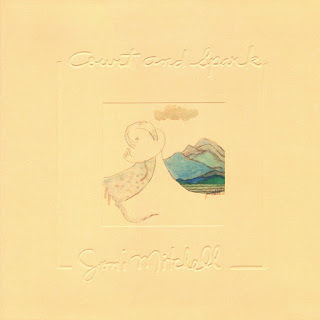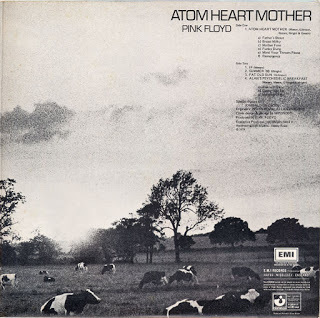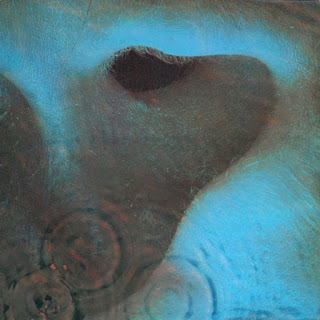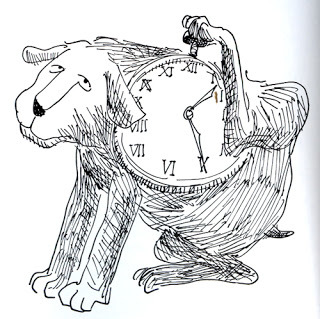R.J. Stowell's Blog: rjsomeone, page 18
September 9, 2020
The Near 10s

Based on the AM rubric, there are few 10s. The critical consensus is that Sgt. Pepper is the greatest of all rock records, but subjectively there are flaws – “Good Morning” is great Lennon, but perfect? Sally and Peppy, therefore, is a 9, if as close to a 10 as possible (just go with me on this, for now). There are though, despite the rigors of getting there, plenty of 9s: the debut Crosby, Stills and Nash, Court and Spark, the eponymous Doors LP, Fleetwood Mac’s first with Buckingham and Nicks, a myriad of others. Here is the analysis of a few – and yes, another day brings a post of the 10s.
 CSN: "Suite: Judy Blue Eyes" from Stephen Stills is the folk/rock "Bohemian Rhapsody," as four "movements" are woven into one masterpiece. Often, seven-minute songs are merely three-minute songs painfully dragged out, not so, "Suite: Judy Blue Eyes." Next up is the Nash creation "Marrakesh Express," a hippy odyssey through western Morocco. One can't help but wonder what he was smoking while "blowing smoke rings." Crosby gets in on the act with "Guinevere,” a loving tribute to a modern Gwen. "You Don't Have To Cry" is a melancholy remembrance of Stills former partner (again, Judy Collins) and a lifestyle that "quite nearly killed" him. "Pre-Road Downs" and "Wooden Ships" are folky interludes that lead to the epic "Lady Of The Island." Here may be the weakest production on the LP. "Helplessly Hoping" on the other hand is spectacular. A finger-picking intro gives way to a pained love song. "Long Time Gone" is rumored to be about the murder of the liberal-thinking Bobby Kennedy, which so intricately fits into Crosby’s formula. The debut draws to a close with "49 Bye-Byes," 5:49 of upbeat melody and harmony that, while not as poppy as "Judy Blue Eyes," is equally sophisticated. The perfect album cover doesn't add to the music, but subjectively still plays a role. A must-have LP. Why not a 10? "Pre-Road Downs," "Lady of the Island."
CSN: "Suite: Judy Blue Eyes" from Stephen Stills is the folk/rock "Bohemian Rhapsody," as four "movements" are woven into one masterpiece. Often, seven-minute songs are merely three-minute songs painfully dragged out, not so, "Suite: Judy Blue Eyes." Next up is the Nash creation "Marrakesh Express," a hippy odyssey through western Morocco. One can't help but wonder what he was smoking while "blowing smoke rings." Crosby gets in on the act with "Guinevere,” a loving tribute to a modern Gwen. "You Don't Have To Cry" is a melancholy remembrance of Stills former partner (again, Judy Collins) and a lifestyle that "quite nearly killed" him. "Pre-Road Downs" and "Wooden Ships" are folky interludes that lead to the epic "Lady Of The Island." Here may be the weakest production on the LP. "Helplessly Hoping" on the other hand is spectacular. A finger-picking intro gives way to a pained love song. "Long Time Gone" is rumored to be about the murder of the liberal-thinking Bobby Kennedy, which so intricately fits into Crosby’s formula. The debut draws to a close with "49 Bye-Byes," 5:49 of upbeat melody and harmony that, while not as poppy as "Judy Blue Eyes," is equally sophisticated. The perfect album cover doesn't add to the music, but subjectively still plays a role. A must-have LP. Why not a 10? "Pre-Road Downs," "Lady of the Island."On 1974's Court and Spark, Joni Mitchell is moving away from her singer/songwriter persona. Gone are the acoustic odes to rivers and Woodstock, replaced by a mature take on the complications and pitfalls of relationships and love, and more importantly, if the fight is worth it or not. "I used to count lovers like railroad cars/ I counted them on my side/ Lately, I don't count nothing/ I just let things slide." But don't confuse C&S as a moppy, down-beat ode to loneliness, when it interjects an upbeat, L.A. sensibility and humor with "Raised On Robbery" and "Free Man In Paris" (which details the troubles at the top for record executive David Geffen). The closer "Twisted," a bebop tune made famous by Lambert, Hendricks and Ross, tells the story of a fatalist analyst and his patient, but one is left smiling and snapping fingers nonetheless. The lyrics separate Joni from the other songwriters, the production, suits the mid-seventies L.A. vibe perfectly. The instrumentation is smooth and jazzy as Joni gets a little help from friends like David Crosby, ex-Graham Nash, Robbie Robertson, Larry Carlton, Joe Sample, Max Bennet, Tom Scott, and a dozen others of similar caliber. It is the Joni equivalent of Steely Dan’s Aja. Weakest Tracks: “Raised on Robbery,” while a stellar rocker it is sorely out of place: “Twisted,” a good rendition that seems like filler.
Here's one you may not have expected and one that appears despite a technicality. How do you follow up an album like Sgt. Pepper? Officially, you don’t. You release an EP called Magical Mystery Tour, the soundtrack to the maligned film of the same name. Now, while Capitol Records is oft-criticized for the American issued Beatles LPs (and I champion them often), here was the one release that was truly superior to its Parlophone/U.K. equivalent. Magical Mystery Tour's U.K. soundtrack EP contained only the title song, "Your Mother Should Know," "I Am the Walrus," "The Fool on the Hill," "Flying" and "Blue Jay Way." (A different running order than the American version.) The EP was released as a double 7inch. Certainly, "MMT," "I Am the Walrus" and "Fool on the Hill" are essential Beatles tracks, but the others are soundtrack fare and "Your Mother Should Know" is a "When I’m 64" rip off. What elevates the American version to a 9, of course, is Side Two. Parlophone/Beatles' policy was to never release a hit single on an LP after the fact. Capitol did not adhere to that unwritten rule and another Beatles 9 was released. Side Two of MMT is a perfect album side with five Beatles standards: "Hello-Goodbye," "Strawberry Fields," "Penny Lane," "Baby You're a Rich Man," and "All You Need is Love." Three of those were No. 1 singles and "Strawberry Fields" would have been, as well, but was released as the double-A side of "Penny Lane." Without the instrumental "Flying" and the weak "Your Mother Should Know," Magical Mystery Tour would be an AM10.
Published on September 09, 2020 09:00
Fun in the Sun With Science and the Beatles
When someone on FaceBook the other day posted a survey on whether the Beatles were the greatest band of all time, it got me thinking about the origins of AM. When I started writing the column years ago and then created the website, the AM moniker was assumed to be the AM from early rock radio days; that AM stood for “Amplitude Modulation” (FM stands for “Frequency Modulation). It did NOT; although the site’s name was left ambiguous. Our intent and purpose, while convoluting the monogram, means "Absolute Magnitude," and is intended as a scale on which one can objectively rate music from 1 to 10. In astronomy, Absolute Magnitude is the actual brightness of a star. The sun above is the brightest object in our sky ("Apparent Magnitude"), but it is a small and dim star in comparison to 100 million others in our galaxy alone; it's proximity commensurate with its brightness. The sun's brightness is, it turns out, merely opinion. And that is the history of our rubric. (The rubric has been reposted below.)
 Okay, The Beatles. Like anyone who's ever sung to their children, I appreciate "Octopus's Garden" as much as anyone, and "Maxwell's Silver Hammer," I sang to my apparently "misguided" children (misguided on my part); why would anyone sing a song to his children about a serial murderer with a hammer? Those "children's songs" objectively denigrate an otherwise perfect album, Abbey Road. I did a survey years ago to find that the most skipped song in the Beatles' catalog (i.e. everyone's least favorite), was "Within You, Without You." Back in the day, I too skipped it, although now I see its merits as one of the top songs on Sgt. Pepper (for me, the third-best and one of the Beatles' most influential tracks). These little quirks deescalate Sgt. Pepper and Abbey Road from AM10s to AM9s. (Yes, it hurts) There are few 9s and fewer 10s – the rubric is that steely. So, the greatest LP of all time is a 9? Yep.Okay, then, examples of 10s: Crosby, Stills, Nash and Young’s Déjà vu, Dark Side of the Moon, Steely Dan’s Aja, The Cure’s Disintegration. Here's the thing, though: as much as the intent of the rubric is to be objective, that goal is not achievable. Your 10s will still be different than mine. Joni Mitchell's Blue, for instance, meets the rubric as a 10, but it's Court and Spark (an AM9) that is my favorite Joni LP. The AM rubric, though, comes as close as one can to finding a numerical system that objectifies rather than subjectifies the music we love.Check out the rubric and then comment about your 10s. Are your favorites different than your AM10s?
Okay, The Beatles. Like anyone who's ever sung to their children, I appreciate "Octopus's Garden" as much as anyone, and "Maxwell's Silver Hammer," I sang to my apparently "misguided" children (misguided on my part); why would anyone sing a song to his children about a serial murderer with a hammer? Those "children's songs" objectively denigrate an otherwise perfect album, Abbey Road. I did a survey years ago to find that the most skipped song in the Beatles' catalog (i.e. everyone's least favorite), was "Within You, Without You." Back in the day, I too skipped it, although now I see its merits as one of the top songs on Sgt. Pepper (for me, the third-best and one of the Beatles' most influential tracks). These little quirks deescalate Sgt. Pepper and Abbey Road from AM10s to AM9s. (Yes, it hurts) There are few 9s and fewer 10s – the rubric is that steely. So, the greatest LP of all time is a 9? Yep.Okay, then, examples of 10s: Crosby, Stills, Nash and Young’s Déjà vu, Dark Side of the Moon, Steely Dan’s Aja, The Cure’s Disintegration. Here's the thing, though: as much as the intent of the rubric is to be objective, that goal is not achievable. Your 10s will still be different than mine. Joni Mitchell's Blue, for instance, meets the rubric as a 10, but it's Court and Spark (an AM9) that is my favorite Joni LP. The AM rubric, though, comes as close as one can to finding a numerical system that objectifies rather than subjectifies the music we love.Check out the rubric and then comment about your 10s. Are your favorites different than your AM10s?
 Okay, The Beatles. Like anyone who's ever sung to their children, I appreciate "Octopus's Garden" as much as anyone, and "Maxwell's Silver Hammer," I sang to my apparently "misguided" children (misguided on my part); why would anyone sing a song to his children about a serial murderer with a hammer? Those "children's songs" objectively denigrate an otherwise perfect album, Abbey Road. I did a survey years ago to find that the most skipped song in the Beatles' catalog (i.e. everyone's least favorite), was "Within You, Without You." Back in the day, I too skipped it, although now I see its merits as one of the top songs on Sgt. Pepper (for me, the third-best and one of the Beatles' most influential tracks). These little quirks deescalate Sgt. Pepper and Abbey Road from AM10s to AM9s. (Yes, it hurts) There are few 9s and fewer 10s – the rubric is that steely. So, the greatest LP of all time is a 9? Yep.Okay, then, examples of 10s: Crosby, Stills, Nash and Young’s Déjà vu, Dark Side of the Moon, Steely Dan’s Aja, The Cure’s Disintegration. Here's the thing, though: as much as the intent of the rubric is to be objective, that goal is not achievable. Your 10s will still be different than mine. Joni Mitchell's Blue, for instance, meets the rubric as a 10, but it's Court and Spark (an AM9) that is my favorite Joni LP. The AM rubric, though, comes as close as one can to finding a numerical system that objectifies rather than subjectifies the music we love.Check out the rubric and then comment about your 10s. Are your favorites different than your AM10s?
Okay, The Beatles. Like anyone who's ever sung to their children, I appreciate "Octopus's Garden" as much as anyone, and "Maxwell's Silver Hammer," I sang to my apparently "misguided" children (misguided on my part); why would anyone sing a song to his children about a serial murderer with a hammer? Those "children's songs" objectively denigrate an otherwise perfect album, Abbey Road. I did a survey years ago to find that the most skipped song in the Beatles' catalog (i.e. everyone's least favorite), was "Within You, Without You." Back in the day, I too skipped it, although now I see its merits as one of the top songs on Sgt. Pepper (for me, the third-best and one of the Beatles' most influential tracks). These little quirks deescalate Sgt. Pepper and Abbey Road from AM10s to AM9s. (Yes, it hurts) There are few 9s and fewer 10s – the rubric is that steely. So, the greatest LP of all time is a 9? Yep.Okay, then, examples of 10s: Crosby, Stills, Nash and Young’s Déjà vu, Dark Side of the Moon, Steely Dan’s Aja, The Cure’s Disintegration. Here's the thing, though: as much as the intent of the rubric is to be objective, that goal is not achievable. Your 10s will still be different than mine. Joni Mitchell's Blue, for instance, meets the rubric as a 10, but it's Court and Spark (an AM9) that is my favorite Joni LP. The AM rubric, though, comes as close as one can to finding a numerical system that objectifies rather than subjectifies the music we love.Check out the rubric and then comment about your 10s. Are your favorites different than your AM10s?
Published on September 09, 2020 08:59
September 8, 2020
Fun in the Sun With Science and The Beatles
 When someone on FaceBook the other day posted a survey on whether the Beatles were the greatest band of all time, it got me thinking about the origins of AM. When I started writing the column years ago and then created the website, the AM moniker was assumed to be the AM from early rock radio days; that AM stood for “Amplitude Modulation” (FM stands for “Frequency Modulation). It did NOT; although the site’s name was left ambiguous. Our intent and purpose, while convoluting the monogram, means "Absolute Magnitude," and is intended as a scale on which one can objectively rate music from 1 to 10. In astronomy, Absolute Magnitude is the actual brightness of a star. The sun above is the brightest object in our sky ("Apparent Magnitude"), but it is a small and dim star in comparison to 100 million others in our galaxy alone; it's proximity commensurate with its brightness. The sun's brightness is, it turns out, merely opinion. And that is the history of our rubric. (The rubric has been reposted below.)Okay, The Beatles. Like anyone who's ever sung to their children, I appreciate "Octopus's Garden" as much as anyone, and "Maxwell's Silver Hammer," I sang to my apparently "misguided" children (misguided on my part); why would anyone sing a song to his children about a serial murderer with a hammer? Those "children's songs" objectively denigrate an otherwise perfect album, Abbey Road. I did a survey years ago to find that the most skipped song in the Beatles' catalog (i.e. everyone's least favorite), was "Within You, Without You." Back in the day, I too skipped it, although now I see its merits as one of the top songs on Sgt. Pepper (for me, the third-best and one of the Beatles' most influential tracks). These little quirks deescalate Sgt. Pepper and Abbey Road from AM10s to AM9s. (Yes, it hurts) There are few 9s and fewer 10s – the rubric is that steely. So, the greatest LP of all time is a 9? Yep.Okay, then, examples of 10s: Crosby, Stills, Nash and Young’s Déjà vu, Dark Side of the Moon, Steely Dan’s Aja, The Cure’s Disintegration. Here's the thing, though: as much as the intent of the rubric is to be objective, that goal is not achievable. Your 10s will still be different than mine. Joni Mitchell's Blue, for instance, meets the rubric as a 10, but it's Court and Spark (an AM9) that is my favorite Joni LP. The AM rubric, though, comes as close as one can to finding a numerical system that objectifies rather than subjectifies the music we love.Check out the rubric and then comment about your 10s. Are your favorites different than your AM10s?
When someone on FaceBook the other day posted a survey on whether the Beatles were the greatest band of all time, it got me thinking about the origins of AM. When I started writing the column years ago and then created the website, the AM moniker was assumed to be the AM from early rock radio days; that AM stood for “Amplitude Modulation” (FM stands for “Frequency Modulation). It did NOT; although the site’s name was left ambiguous. Our intent and purpose, while convoluting the monogram, means "Absolute Magnitude," and is intended as a scale on which one can objectively rate music from 1 to 10. In astronomy, Absolute Magnitude is the actual brightness of a star. The sun above is the brightest object in our sky ("Apparent Magnitude"), but it is a small and dim star in comparison to 100 million others in our galaxy alone; it's proximity commensurate with its brightness. The sun's brightness is, it turns out, merely opinion. And that is the history of our rubric. (The rubric has been reposted below.)Okay, The Beatles. Like anyone who's ever sung to their children, I appreciate "Octopus's Garden" as much as anyone, and "Maxwell's Silver Hammer," I sang to my apparently "misguided" children (misguided on my part); why would anyone sing a song to his children about a serial murderer with a hammer? Those "children's songs" objectively denigrate an otherwise perfect album, Abbey Road. I did a survey years ago to find that the most skipped song in the Beatles' catalog (i.e. everyone's least favorite), was "Within You, Without You." Back in the day, I too skipped it, although now I see its merits as one of the top songs on Sgt. Pepper (for me, the third-best and one of the Beatles' most influential tracks). These little quirks deescalate Sgt. Pepper and Abbey Road from AM10s to AM9s. (Yes, it hurts) There are few 9s and fewer 10s – the rubric is that steely. So, the greatest LP of all time is a 9? Yep.Okay, then, examples of 10s: Crosby, Stills, Nash and Young’s Déjà vu, Dark Side of the Moon, Steely Dan’s Aja, The Cure’s Disintegration. Here's the thing, though: as much as the intent of the rubric is to be objective, that goal is not achievable. Your 10s will still be different than mine. Joni Mitchell's Blue, for instance, meets the rubric as a 10, but it's Court and Spark (an AM9) that is my favorite Joni LP. The AM rubric, though, comes as close as one can to finding a numerical system that objectifies rather than subjectifies the music we love.Check out the rubric and then comment about your 10s. Are your favorites different than your AM10s?
Published on September 08, 2020 05:50
Repost of Our First Article from 2014. Absolute Magnitude
AM is Absolute Magnitude, a measure of brightness without regard to distance. AM, the website, applies this concept to Music (and occasionally to film and the arts). In this forum, hosts and readers alike critique the brightest as well as the darkest stars on an AM scale of 10. There are indeed tens in AM; they’re just few and far between. Sgt. Pepper is a ten. So is Joni Mitchell’s Blue. AM’s goal is to create an objective forum. A rubric is in place as the AM litmus test and was designed specifically for the album format, though the same rubric is in place for singles as well:
Songwriting/Lyrics (2 points): This combined category is the most subjective of the five. Here the critique analyzes both songwriting and/or lyricism. Instrumentals, from King Crimson’s “Lark’s Tongue In Aspic” to “Tubular Bells,” both max out in this category; so does “The Great Gig in the Sky,” despite not having any lyrics. From Bernie Taupin’s lyricism to Hal Asher’s realism, lyrics may often provide the key to a 2.
Musicality (2 points): Bands like The Who and Led Zeppelin have arguably the most talented line-ups in music. If your drummer is someone people fight over (Moony/John Bonham), chances are the category’s worth 2. Conversely, no one will deny the musicality on the Beach Boys’ “Wouldn’t it Be Nice.” Notwithstanding the studio musicians’ overwhelming role in the single, “Wouldn’t it Be Nice” still gets a 2.
Production (2 points): Without Brian Wilson’s impeccable production, no one would have listened to Pet Sounds. Production is often the difference between a ten and a one. Pet Sounds gets a 2, so does Dark Side of the Moon. Exile on Main Street’s muddy lyrics and monotone production values keep Exile from the ten it may have otherwise garnered.

Impact (2 points): No one bought a Van Gogh before he died. The album being critiqued may not have even made the radar when it was new, so impact is a hard call. Nobody denies the influence of the yellow B-52s album – like it or not, the impact is undeniable. Neil Young’s After the Gold Rush was a bust in 1970, but today it shines as one of the great folk-rock albums. This is a category that may change with time – up or down.
Longevity (2 points): Does the critiqued album have legs? After the Goldrush, Sgt. Pepper, The Cure’s Disintegration – just as incredible today as ever. Country Joe and the Fish – not so much.
Let’s put it into place: Crosby, Stills & Nash by Crosby, Stills & Nash - AM10Songwriting: “Suite Judy Blue Eyes”, Stephen Stills’ love paean to Judy Collins, is still fun 40 years on. The doo-wop coda is the coolest thing on radio takeaway “Bennie and the Jets.” The album is chock full of folk rock sounds and harmonies, from Crosby's evocative “Guinevere” to Graham Nash's perky "Marrakesh Express" and Stills’ “49 Bye-Byes.” “Wooden Ships,” is another stand-out, not to mention “Long Time Gone,” David Crosby's moving, if cynical, tribute to Robert Kennedy. Every song here is class and quality.
Musicality/Production: With CSN performing all of the instrumentation and Dallas Taylor on drums, the album’s sound is rich and full, if simple. Production and Post-Production work was CSN as well and the clarity and engineering is unsurpassed.
Impact: Didn’t hurt that these songs were well-represented at Woodstock; the film’s opening scenes with “Long Time Gone” still bring a chill. That aside, this was a new step in truly American music capturing our sensibilities and our dissatisfactions. This album was a stepping stone into the 70s.
Longevity: And here it is the 80s, the 90s, the naughts, the teens; still just as good.
Reviews shouldn’t be this formulaic, and keep in mind that no matter the rubric, any critique remains subjective. Comments to the contrary and alternate reviews are always welcome and help to firm up the scores we’re hoping to set in stone.

Songwriting/Lyrics (2 points): This combined category is the most subjective of the five. Here the critique analyzes both songwriting and/or lyricism. Instrumentals, from King Crimson’s “Lark’s Tongue In Aspic” to “Tubular Bells,” both max out in this category; so does “The Great Gig in the Sky,” despite not having any lyrics. From Bernie Taupin’s lyricism to Hal Asher’s realism, lyrics may often provide the key to a 2.
Musicality (2 points): Bands like The Who and Led Zeppelin have arguably the most talented line-ups in music. If your drummer is someone people fight over (Moony/John Bonham), chances are the category’s worth 2. Conversely, no one will deny the musicality on the Beach Boys’ “Wouldn’t it Be Nice.” Notwithstanding the studio musicians’ overwhelming role in the single, “Wouldn’t it Be Nice” still gets a 2.
Production (2 points): Without Brian Wilson’s impeccable production, no one would have listened to Pet Sounds. Production is often the difference between a ten and a one. Pet Sounds gets a 2, so does Dark Side of the Moon. Exile on Main Street’s muddy lyrics and monotone production values keep Exile from the ten it may have otherwise garnered.

Impact (2 points): No one bought a Van Gogh before he died. The album being critiqued may not have even made the radar when it was new, so impact is a hard call. Nobody denies the influence of the yellow B-52s album – like it or not, the impact is undeniable. Neil Young’s After the Gold Rush was a bust in 1970, but today it shines as one of the great folk-rock albums. This is a category that may change with time – up or down.
Longevity (2 points): Does the critiqued album have legs? After the Goldrush, Sgt. Pepper, The Cure’s Disintegration – just as incredible today as ever. Country Joe and the Fish – not so much.
Let’s put it into place: Crosby, Stills & Nash by Crosby, Stills & Nash - AM10Songwriting: “Suite Judy Blue Eyes”, Stephen Stills’ love paean to Judy Collins, is still fun 40 years on. The doo-wop coda is the coolest thing on radio takeaway “Bennie and the Jets.” The album is chock full of folk rock sounds and harmonies, from Crosby's evocative “Guinevere” to Graham Nash's perky "Marrakesh Express" and Stills’ “49 Bye-Byes.” “Wooden Ships,” is another stand-out, not to mention “Long Time Gone,” David Crosby's moving, if cynical, tribute to Robert Kennedy. Every song here is class and quality.
Musicality/Production: With CSN performing all of the instrumentation and Dallas Taylor on drums, the album’s sound is rich and full, if simple. Production and Post-Production work was CSN as well and the clarity and engineering is unsurpassed.
Impact: Didn’t hurt that these songs were well-represented at Woodstock; the film’s opening scenes with “Long Time Gone” still bring a chill. That aside, this was a new step in truly American music capturing our sensibilities and our dissatisfactions. This album was a stepping stone into the 70s.
Longevity: And here it is the 80s, the 90s, the naughts, the teens; still just as good.
Reviews shouldn’t be this formulaic, and keep in mind that no matter the rubric, any critique remains subjective. Comments to the contrary and alternate reviews are always welcome and help to firm up the scores we’re hoping to set in stone.

Published on September 08, 2020 05:11
September 7, 2020
On Atom Heart Mother

The cows on the cover of Pink Floyd's Atom Heart Mother are far more famous than the music within. Pink Floyd was a band of stages. The Syd years (Piper at the Gates of Dawn and Saucerful of Secrets), the impossible years (how could one band create four such monumental LPs?), the Roger Waters "solo" LPs (The Wall and The Final Cut), and the non-Roger Years.
There are those albums we skim over like the soundtracks for More and Obscured By Clouds, and then there's Atom Heart Mother. EMI records under L.G. Wood signed off on the LP which didn’t have the album's title or the name of the band, just pictures of cows, and still, the album made it to No, 1 on the British Charts.
Side One is the monumental title cut (23 minutes worth) which is unlike anything else Pink Floyd ever did, filled with orchestrations and experimentation; indeed it is the apogee of the experimental years. Pink Floyd by Atom had nixed the pop philosophy and until "Money" didn't release a single from 1978 to 1973.
Prior to Atom Heart Mother, the band had another soundtrack offering, Zabriskie Point, this time with odd bedfellows The Grateful Dead. Most of PF's material was cut from the soundtrack and that, mostly the creation of Gilmour, was the catalyst for the "Atom Heart Mother" suite.
Pink Floyd entered Abbey Road in early March to record on the studio’s newly installed state-of-the-art eight-track recorders. Waters and Mason recorded the backing track in one 23.44-minute take. "It demanded the full range of our limited musicianship," said Mason. "We added, subtracted and multiplied the elements, but it still seemed to lack an essential something." That “something” was the orchestration and choir, the work of Mason friend, Ron Geesin.
Waters' called the opening movement "plodding," but three minutes in, Gilmour's slide takes over, underpinning a mournful cello. Here one gets a taste of what Pink Floyd would soon achieve on Meddle and Dark Side. On the fourth movement, "Funky Dung," the guitar and Hammond organ play tag on what sounds a bit like "Any Colour You Like," while the choir's gospel-like vocals evoke those heard on "Eclipse." The suite’s fifth section, "Mind Your Throats Please," combines Nick Mason’s gruff "Silence in the studio!" warning with Rick Wright's piano as played through a Leslie speaker, a trick later used on "Echoes."
Side two is Pink Floyd at their most merry and poppy, more so even than the hit days of "See Emily Play" and "Paint Box." Side two concludes with the odd "Alan's Psychedelic Breakfast," with its run-on groove of a dripping faucet.
Tape operator Alan Parsons said, "Floyd had a general aversion to record company people," Parsons said. "An A&R guy showed up and Roger and Ron said, ‘We’ll play you a bit of the album.'" Prior to his arrival, they hid a turntable under the desk and proceeded to play an old 78rpm disc through the studio speakers. The A&R man looked baffled and walked out. "But we were all unable to keep a straight face."
 Nick Mason said Pink Floyd "never threw any musical ideas away," and Ron Geesin recalls the four songs on the album's second side developing from "scraps of things they had lying around".
Nick Mason said Pink Floyd "never threw any musical ideas away," and Ron Geesin recalls the four songs on the album's second side developing from "scraps of things they had lying around". It's the lyrics that make Roger Waters' "If" so charming. "If I were a good, man I'd understand the spaces between friends." Ironically, Geesin was there the day Barrett appeared at Abbey Road. He sat there staring at his old bandmates, then disappeared.
Next up was Rick Wright's Summer ’68, a song about a casual encounter with a groupie, featuring the EMI Pops Orchestra’s buoyant brass. "In the summer of '68 there were groupies everywhere," Wright said. "They’d come and look after you like a personal maid… and leave you with a dose of the clap."
My favorite is Gilmour's "Fat Old Sun." "It's fantastically overlooked," he said Gilmour. "[I] tried very hard to push the others… but they weren’t having it."
The album end, of course, with "Alan's Psychedelic Breakfast," a meandering instrumental augmented by the sound of Floyd roadie Alan Styles cooking bacon, eggs and toast, and rendered in sumptuous quadrophonic sound. "One take went, ‘Egg Frying Take One,’ followed by, ‘Whoops!’ as the egg dropped," Alan Parsons recalled.
Atom Heart Mother is one of those deep Pink Floyd listens, but everyone should hear it once to see the direction the band would take with Meddle, and then, of course, with Dark Side of the Moon. You may even find yourself gravitating back to it – it does have an odd musical spell.
Published on September 07, 2020 05:13
September 6, 2020
Repost: Meddle [Atom Heart Mother]
 While there is something to be said, lots to be said, about Atom Heart Mother, I have never found it even remotely listenable, hence the lack of a contemplative review. I recognize that with it, the band had found its soundscape, but lacked the upper hand over Ron Geesin. With this it fails in the same way that The Beach Boys Smile did; that concept too mired in the heavy-handed lyrics of Van Dyke Parks. AHM to this writer is but an iconic album cover and a transition between the soundtracks and Meddle, but that's me. (Stanley Kubrick appreciated the LP on a much greater level, asking to use the title track in Clockwork Orange; the band denied the request. The album cover nonetheless can be seen in the record store when Alex meets the two young girls setting up cinema’s most hilarious sex scene.)
While there is something to be said, lots to be said, about Atom Heart Mother, I have never found it even remotely listenable, hence the lack of a contemplative review. I recognize that with it, the band had found its soundscape, but lacked the upper hand over Ron Geesin. With this it fails in the same way that The Beach Boys Smile did; that concept too mired in the heavy-handed lyrics of Van Dyke Parks. AHM to this writer is but an iconic album cover and a transition between the soundtracks and Meddle, but that's me. (Stanley Kubrick appreciated the LP on a much greater level, asking to use the title track in Clockwork Orange; the band denied the request. The album cover nonetheless can be seen in the record store when Alex meets the two young girls setting up cinema’s most hilarious sex scene.)So, on to Meddle…
The album begins with "One Of These Days," an instrumental to end all instrumentals. A simple, pulsating but murderous bass chews its way in while synth sounds complete the scene. Add-on monolithic, Barundi-like drumbeat and a perverse, distorted guitar and the atmosphere is decidedly voracious. Towards minute three, Wright tools a dark synthesizer arpegio, until a monstrous voice exclaims, "One of these days I'm going to cut you into little pieces" as everything explodes into heady madness. "One of These Days" is one of the great progressive rock overtures.

Instantly, a beautiful cascade of acoustic guitars arises like someone slumbering on "A Pillow Of Winds;" the contrast could not be more marked. It's a beautiful ballad, with one of the most wonderfully lazy atmospheres one can experience, as if the listener were hamacándose-ing under the sun (I understand; not really a word – think of a swinging hammock).
Meddle is the first real Pink Floyd Album - Nick Mason
Next up is "Fearless." Anthemic and climactic, the final minute, in which Liverpool futbol fans sing "You'll Never Walk Alone," is chilling. The chanting, somewhat drunken climax, coarse as it is, makes the segue into "San Tropez" that much more atmospheric. Finally, "Seamus" is a blues exercise with a slide and the howling of a dog (owned by Steve Marriott, the singer of Small Faces and Humble Pie. The dog's name, of course: Seamus). Side one of Meddle is a perfect album side in that each track enhances the journey of the last, but don’t confuse the perfect-side ideology – these are not perfect songs, nor do they mirror the brilliance of the B-side. These are tracks with oodles of character, nothing more, and where "Echoes" itself is a definitive AM10, these pop exercises are a 5 or 6, "perfect" as they are.

Side two is entirely occupied by "Echoes," head and shoulders above anything that Pink Floyd had done up to that point (I can hear the groans as I write this). It begins with a high-pitched piano note that sounds like a drop of water falling on a plate. The other instruments are added little by little, with the result, a diabolical crescendo. A mysterious melody emerges, subtle Gilmour punches appear, and then, in a format echoing "One of These Days," explodes into a thousand pieces, giving way to the song's major theme and a ravishingly beautiful melody. Space rock at its most severe preps the listener for the last ten minutes, among the most magnificently epic moments in rock. Pink Floyd had accomplished what Hitchcock created in film, a dramatic crescendo of suspense and anticipation. The cacophony finally settles in and returns to the main melody, this time instrumentally, with the falling action beautifully trickling away like a stream in the forest. "Echoes" is an album-side epic that rivals "Supper's Ready" and "Close to the Edge."
Meddle, strictly following the AM rubric is an AM7, but as a listen, as an experience, it rivals anything on vinyl. It's mood music for just the right mood.

Published on September 06, 2020 07:16
Rethinking Atom Heart Mother After 50 Years
 In the repost below, you'll find a naïve refusal to even listen to Atom Heart Mother. The post is from the early days of AM, but that is no excuse; I've been writing about rock music since the late 70s. In high school, I wandered around the campus shouting out the Welsh gibberish at the end of "Several Species of Small Furry Animals Gathered Together in a Cave and Grooving with a Pict," so yeah, no excuse. On the radio show and on Youtube I talked extensively about "Alan's Psychedelic Breakfast" as one of the first tracks with a run-off groove, so I thought it was time for another listen – ridiculous, nearly 50 years later.
In the repost below, you'll find a naïve refusal to even listen to Atom Heart Mother. The post is from the early days of AM, but that is no excuse; I've been writing about rock music since the late 70s. In high school, I wandered around the campus shouting out the Welsh gibberish at the end of "Several Species of Small Furry Animals Gathered Together in a Cave and Grooving with a Pict," so yeah, no excuse. On the radio show and on Youtube I talked extensively about "Alan's Psychedelic Breakfast" as one of the first tracks with a run-off groove, so I thought it was time for another listen – ridiculous, nearly 50 years later. 2020 take: Atom Heart Mother is the culmination and a fitting finale to the band's early experimentation. While the album as a whole isn't quite as experimental as Ummagumma's studio disc, it's still the work of a band that hadn't yet figured out its direction. A younger me found this disconcerting. It made Atom Heart Mother feel inconsistent at best.
But with its orchestration and Ron Geesin’s guiding hand, its multiple suites and epic-length ensure an experience that this was practice for later, greater epics like "Echoes" and "Dogs," AHMgets far more right than wrong.
While it is unrepresentative of The Pink Floyd Sound and thus quite an oddity in their discography, Atom Heart Mother is nevertheless one of the most accomplished albums of the early 1970s, and perhaps of rock music in general. Here was the 70's in its infancy, here was the star child from 2001.
The title track, a collaboration with Geesin featuring the John Aldiss Choir, is an extended suite for band, brass and choir that screams concert hall rather than rock record. It could easily be sidelined as one of the numerous rock/classical crossover project of the time, a prog-rock experiment gone awry, if it wasn't so convincingly executed; you can't even tell to what extent it's taking itself seriously, and how much of it is tongue-in-cheek. It's that good. The title track was the most ambitious and artistic venture the band had laid to vinyl. At 23 minutes long, and divided into six movements, the suite is a sonic adventure, leaving one's mind effectively blown, as they'd say, at the end. In between the title track and Alan’s breakfast, Roger Waters, David Gilmour, and Richard Wright write and play their own tracks, something that would ebb with their next offering as songwriting control shifted to Waters (more regrettably with each subsequent effort – I can hear the horror of your responses already, but honestly, is The Final Cut a Floyd LP or a Waters solo?).
Roger Waters impersonates a mentally rather unstable person on the chilling "If," which sends shivers down my spine every time he requests that no one put their wires into his brain.
Rick Wright's "Summer 68" is a more upbeat, piano-heavy track, somewhat anticipating his songs on Meddle and Obscured by Clouds, almost catchy and poppy, while David Gilmour's excellent "Fat Old Sun" continues musically where he left Ummagumma's "The Narrow Way," and just another sublime guitar solo, to boot.
"Alan's Psychedelic Breakfast,” PF’s venture into comedy is dang funny, and sound engineer Alan Parsons' mumbling about toast and marmalade fits succinctly into the bizarre atmosphere laid out by the other tracks.
Okay, this time around, I'm sold.
Published on September 06, 2020 07:16
September 4, 2020
Calif.- Get Your Copy Now
Calif. is the new novel by AM's R.J. Stowell, author of Miles From Nowhere and Jay and the Americans. Get your copy now at Amazon (click HERE). You can also read each of the novels FREE on Kindle Unlimited, which currently has a free two-month trial.
Want an autographed copy? Send an email to rjsomeone@gmail.com. Just $12 including shipping.
Published on September 04, 2020 06:32
September 3, 2020
A Clockwork Orange - 50 Years Ago
The first book I ever read was The Phantom Tollbooth by Norton Juster. Still one of my favorite reads. I followed it up with Charlie and the Chocolate Factory, but despite the illustrious beginning to my sojourn as a reader, I was slow to call myself such. Wasn't until many years later that I picked up Kurt Vonnegut Jr.'s Breakfast of Champions. I whipped through it in a day and while the logical next step was Slaughterhouse-Five, I forced myself through Player Piano instead, Vonnegut's first novel. It was a difficult read but worth it, that was the book that made me a reader. My favorite novel though was A Clockwork Orange. (Today being far more sentimental, it is Kazio Ishiguru’s The Remains of the Day.)
 The Phantom Tollbooth - Tock, the dog that goes TickThe other day my oldest asked if I'd ever read A Clockwork Orange, and if I did, how could I? Because of the language used, which Anthony Burgess referred to as Nadsat, it takes an hour to plod through the first page alone. Here it is. I can't remember what I'm supposed to do today, but I have the first page memorized.
The Phantom Tollbooth - Tock, the dog that goes TickThe other day my oldest asked if I'd ever read A Clockwork Orange, and if I did, how could I? Because of the language used, which Anthony Burgess referred to as Nadsat, it takes an hour to plod through the first page alone. Here it is. I can't remember what I'm supposed to do today, but I have the first page memorized.What’s it going to be then, eh?
There was me, that is Alex, and my three droogs, that is Pete, Georgie, and Dim, Dim being really dim, and we sat in the Korova Milkbar making up our rassoodocks what to do with the evening, a flip dark chill winter bastard though dry. The Korova Milkbar was a milk-plus mesto, and you may, O my brothers, have forgotten what these mestos were like, things changing so skorry these days and everybody very quick to forget, newspapers not being read much neither. Well, what they sold there was milk plus something else. They had no licence for selling liquor, but there was no law yet against prodding some of the new veshches which they used to put into the old moloko, so you could peet it with vellocet or synthemesc or drencrom or one or two other veshches which would give you a nice quiet horrorshow fifteen minutes admiring Bog And All His Holy Angels and Saints in your left shoe with lights bursting all over your mozg.Or you could peet milk with knives in it, as we used to say, and this would sharpen you up and make you ready for a bit of dirty twenty-to-one, and that was what we were peeting this evening I’m starting off the story with.
Today coincidentally was the first day of production, 50 years ago, for the Stanley Kubrick film based on the book. While the book is indeed fabulous, the movie at times exceeds the ideology and of course, Malcolm McDowell's Alex is impeccable.
It's interesting to note that when it was released in the 1960s, the British version of the novel was incomplete. Burgess did not include the final chapter that appears in both the American version and as the ending to the film. Still one of my favorite books, and classic Kubrick.
One of a myriad of creative touches that made Kubrick Kubrick was the incidental music. For Clockwork Orange (Kubrick, for some reason, dropped the "A" from the title), the soundtrack was a mix of classical recordings, such as Rossini's "The Thieving Magpie" and the electronic music of Walter (then transitioning to Wendy) Carlos.
Without having to say it, Carlos, Rachel Elkind, and Kubrick had great taste in music. I can imagine the impact the vocoder had on an audience in 1972, but while it sounds dated at times, it's used to good effect, notably on The 4th Movement of Beethoven's Ninth and on Henry Purcell’s "Music for the Funeral of Queen Mary," which sounds like it was written expressly for the synthesizer.
Overall, A Clockwork Orange: Wendy Carlos’s Complete Original Score is a strong, cohesive work that stands entirely on its own despite having been written to accompany a film.
Published on September 03, 2020 08:33
August 31, 2020
Calif. - 50 Years Ago - After the Gold Rush
While reading Calif., the reader is virtually transported to 1970. Through the setting and the visuals, the artists and the narration, we are whisked to a scene 50 years ago to the day. And so it is that on June 15, 1970, "in walked Neil Young." Miles has taken a job at a rock club up the coast – let’s listen in…
As I left the office, in walked Neil Young. He was somewhat imposing, kind of big, like a farmhand; like they grew them up big in Canada where there was lots of elbow room. He had a well-worn white shirt like you’d wear with a tuxedo, flared jeans and chukka boots. He sat on the couch and the fella with him plugged an acoustic guitar into an amplifier. He strummed it a couple times and handed it to Neil. Both of them said “Hey” to me, which was kind of nice.I found myself a table on the side and by showtime the place was packed. It was an intimate affair with Neil mostly at the piano. He did “Cinnamon Girl,” of course, and “Down by the River.” He sang “Tell Me Why” and a song called “Expecting to Fly,” and it was like we were all just hanging out. He did a new number that he said would be on the next album. It had some spacy, otherworldly lyrics interspersed with a romantic medieval vibe. It was called “After the Gold Rush.” He sang, “There was a band playing in my head, and I felt like getting high.” I looked at the girl across from me. She caught my eye and nodded as she bobbed her head to the beat, like everyone in the room was on the same wavelength. “Look at mother nature on the run in the nineteen-seventies,” he sang. You could have heard a pin drop.When the show was over, I found Mr. Chadwick. He asked how I liked it. I didn’t tell him that I could have cried, like it was the best homily I’d ever heard. As I said, you have to suck in the truth sometimes.I emptied ashtrays, filled the cigarette machine, washed glasses behind the bar, picked up empty beer bottles and put all the chairs upside down on the tables. There was lots of banter and Mr. Chadwick always had something sarcastic to say. He was pretty funny. Neil Young walked out the front door, and said “Later, kid,” as he passed. At the end of the night, it was about 2:30, Mr. Chadwick handed me a ten and a couple singles. It was a good day’s work. Dawned on me I’d never worked a day in my life.
Don't miss out on the magic. Calif. is available now on Amazon.
Get a signed copy by shooting us an email: rjsomeone@gmail.com - just $15 - includes shipping!
Published on August 31, 2020 18:27



